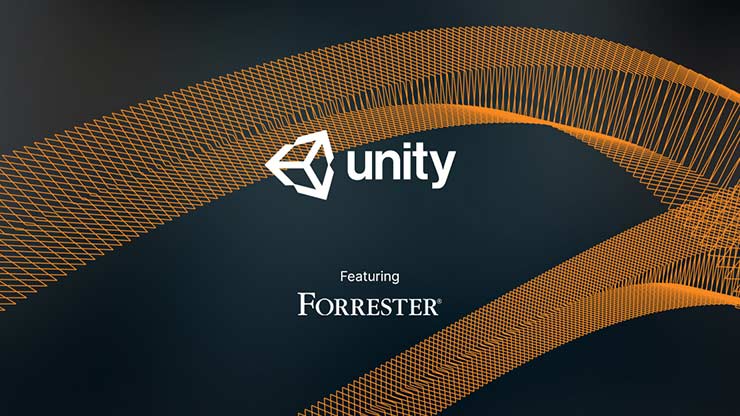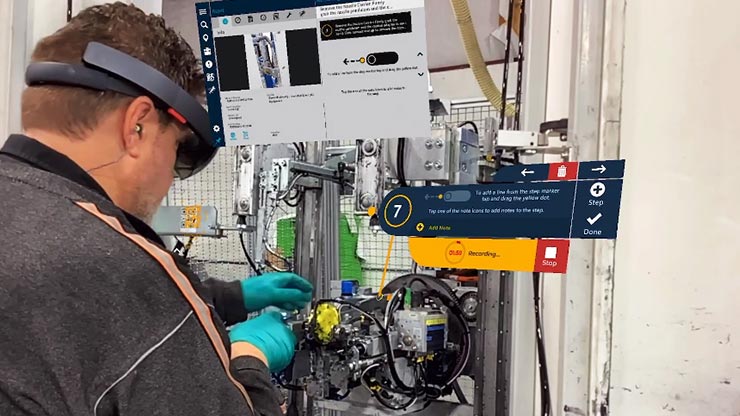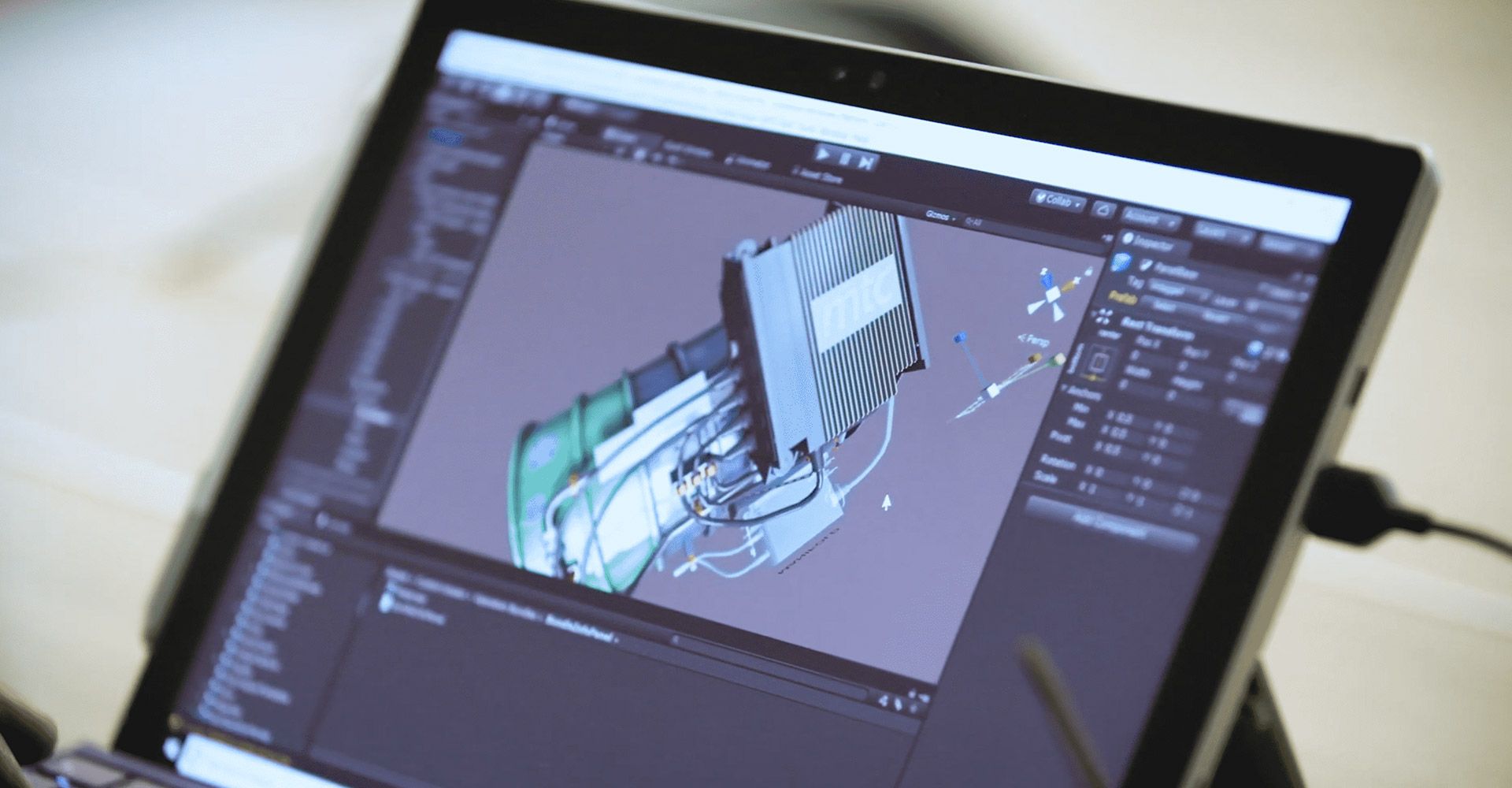
The Manufacturing Technology Centre (MTC) is a research and technology organization, part of High Value Manufacturing Catapult, with a broad technology portfolio around multiple industrial sectors. Its members include blue chip firms around the world, who turn to the MTC to help them incubate and pressure test manufacturing applications of next-generation tech.
Finding cutting-edge solutions for high-value manufacturing firms’ diverse needs by developing and pressure testing innovative real-time 3D projects
HoloLens 2, Gear VR, iOS, Windows, Android, Web, Oculus, HTC
7 engineers who use Unity as their main development tool
Coventry, U.K.

In an organization like the MTC, every project is bleeding edge, so it needs lightning-fast resolutions of issues and expert insight into emergent tech. After a few years of using Unity as its real-time 3D development platform of choice, the Centre added the Integrated Success Services (ISS) program to access better support and strategic guidance for its trailblazing team, and the benefits have gone far beyond what anyone had imagined.

The mandate of the MTC’s advanced visualization team is to deliver business value for its manufacturing clients by transforming how their workers see and manipulate enterprise data. The Centre’s projects operate on condensed timelines and run the gamut from instructional guidance applications in mixed reality and VR training solutions to digital twins of an entire factory.
Before signing up for Unity’s ISS package, Brent Poynton, a technical specialist and the MTC team lead, felt like the team was “at the mercy” of Stack Overflow and self-service support to solve the complex technical challenges they face day after day. “We’ve only got so many resources and individuals, and we need to get bang for our buck in terms of person-hours of effort,” says Poynton.
The MTC signed up for Unity’s ISS package and noticed a night-day difference.
“The ticketing system has saved us on a number of occasions. Every single ticket we open up is resolved, and resolved quickly,” Poynton says. “The quality of the replies we get is exceptional, and the fast response time enables things to continue. These are things that we would not have been able to solve and would have put projects at risk.”
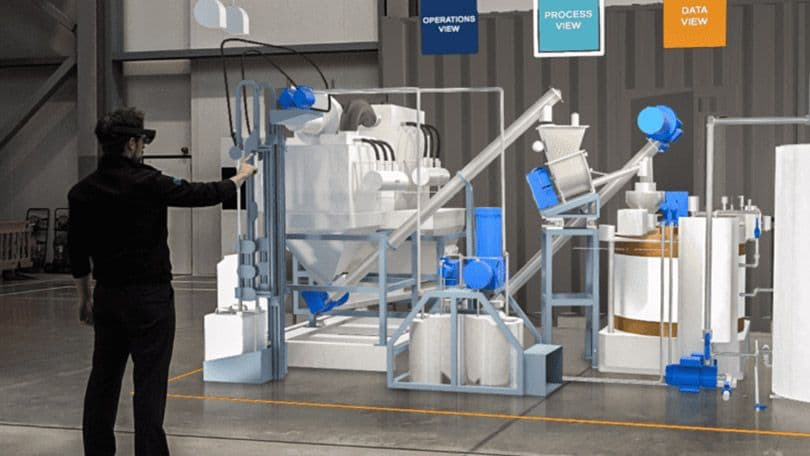
But the program is designed to address needs well beyond day-to-day operational support. The strategic guidance the MTC receives on top of its premium support relationship has helped the team accelerate product design and development for its clients.
Unity provided the MTC with a Developer Relations Manager (DRM), a Unity employee who acts as an extension of the MTC team. The DRM maintains regular contact with the MTC to accelerate its access to the Unity tools and expertise it needs. This support takes many forms, including guidance in best practices, help implementing new tools and features, and an insider’s knowledge of what’s coming down the pipeline.
On biweekly calls, the MTC discusses its active projects and upcoming milestones, and the DRM follows up within Unity, calling on internal teams to find additional learning resources and references to share with the MTC or putting them in contact with internal experts.
It ensures that the MTC takes advantage of the full scope of Unity’s offerings, and it has proven to be the most valuable benefit of the Centre’s relationship with Unity. As Jose-Maria Blanco Gomez, an advanced research engineer at the MTC, explains it, “It takes a lot of time to evaluate and understand the scope of the opportunities within Unity. Our DRM knows Unity’s whole ecosystem of plugins, packages, and partners, and works with us to apply those things that will help us accelerate our workflows.”
As an extension of the MTC, the DRM also champions its needs internally at Unity, whether that’s by expediting a ticket or gaining access to the team who wrote the code for a much-used feature.
But the MTC benefits even more from the expedited access to information from within Unity. “It’s become a relationship where we go to our DRM with a higher level of problem that our customers are coming to us with,” explains Blanco Gomez.
The DRM then provides insight into how Unity can solve that problem and helps the MTC team to “get a handle really quickly on what we can actually achieve.” This strategic partnership has strengthened the team’s ability to propose innovative ideas for projects that get funded and move into production.
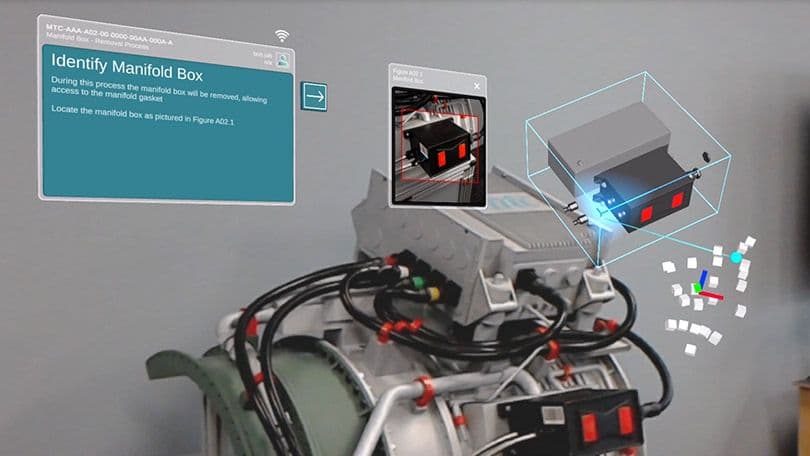
What does this look like in practice? Poynton cites a large project that required the MTC to create a digital platform for 3D assets, then pair these with physical objects around the Centre’s campus.
“Let’s understand your use case, the scope, and the technologies. Let’s get an engineer assigned to this so they can come in and help you rapidly develop the critical aspects and features for this application,” Poynton says, describing Unity’s response to this challenge. “It was all set up and ready to fly in two or three weeks’ time – instead of the months it would’ve taken us to do ourselves.”
To provide additional support to the MTC, Unity has orchestrated all-day hands-on workshops with its solutions engineers and other experts. These have proven to be a win-win: Not only does the MTC’s advanced visualization team benefit from deeper immersion into their tools, but it also helps them progress in their goal to expand the reach of Unity throughout the MTC. They use these events to support their internal collaboration efforts by inviting other teams within the MTC that they do not typically engage with.
One of the MTC’s core functions is to stay enough ahead of the curve so that it can help its members and partners see what lies ahead – and help them create elegant and effective solutions to meet tomorrow’s challenges. Working with Unity gives the Centre and its members greater visibility into development trends.
“We get access to things that aren’t in the public domain yet, so we can make sure we’re not doing parallel development or investigating things that we know there is a solution for coming in the pipeline,” Poynton says. “That has a lot of value.”
The two teams are able to look at their projects and roadmaps side by side to see where they meet up, so the MTC can take better advantage of opportunities – and do so earlier.
“Strategically, being able to have access to Unity’s roadmap is invaluable, and especially the industrial roadmap,” says Poynton. “We get to see what kinds of technology, plugins, and packages Unity is developing, so we can identify opportunities for leveraging them when they drop.”

Get in touch to learn more about our support services.

